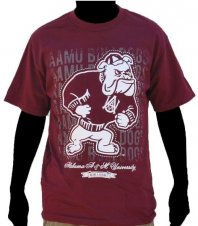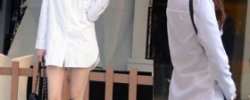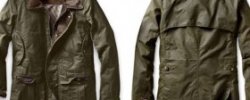The following may be the formal summary report from Collegiate Apparel Research Initiative (CARI) in Indonesia. CARI is an immersion system of United Students Against Sweatshops (USAS) that conducts analysis and supports cooperation building in clothing creating regions worldwide. For ten-weeks during summertime of 2000, the CARI Indonesia team lived-in Jakarta, looking into the garment industry and exactly how it affects workers and communities. The team contained two pupils, Deepinder Mayell, a junior at Boston College majoring in Political Science, and Michael Burns, a second-year graduate pupil within work Center, University of Massachusetts, Amherst. Jessica Champagne, a junior at Yale University, assisted with task design and group positioning. More info about this task, including full interview transcripts is found at
Introduction
Throughout the last three years the sweatshop movement has quickly expanded across a huge selection of North American university campuses. United Students Against Sweatshops (USAS), leading understanding today the biggest student campaign in the usa, has actually lobbied college and institution administrations to adopt steps to ensure collegiate certified attire is produced utilizing sound work practices: in clean and healthy factories, with reasonable hours and good pay, along with the freedom for employees to organize and bargain collectively. This work has focused on creating Codes of Conduct, which regulate the problems under which collegiate accredited attire is produced, and affiliating schools because of the Worker liberties Consortium (WRC) to confirm Code compliance. The WRC design is predicated on involving neighborhood Non-Governmental companies (NGOs) most familiar with the relevant employee issues. It really is this bigger framework that shaped our research design.
We'd some objectives in Indonesia: to build and enhance a community of contacts between USAS and Indonesian NGOs, unions, pupils and employees, especially those dedicated to the garment business; to evaluate NGOs regarding suitability for tracking functions; to share our experiences with Indonesian students; to know about the reason why and just how Indonesian student groups have built connections with labor unions; to have first-hand familiarity with the problems in collegiate attire production facilities; and also to research just how apparel production impacts employees and communities.
So that you can develop effective methods to the sweatshop problem, it is important to study the complex regional, national, and international dynamics that creates and perpetuate sweatshop circumstances. Even as we move towards administration of collegiate Codes of Conduct, we ought to know how the locally-based confirmation model can and should function. Interviewing prospective NGO partners is an important part with this procedure. So as to deal with these interrelated problems because they relate genuinely to garment production in Indonesia, our research and this report have two central elements: examining the factory and living circumstances of apparel employees and examining which local organizations can many efficiently facilitate tracking and verification of US-based collegiate Codes of Conduct.
Indonesia is within a time period of change and huge modification. As Indonesia emerges from Suharto era and consolidates democratic organizations, its clear that Indonesia is an experiment the entire world is seeing. This new period suggests different things to various groups but will definitely influence the apparel business, and so collegiate manufacturing conditions.
For pupils, Democratic reforms mean use of some ideas and texts that were once repressed. Pro-worker and pro-reform demonstrations have been met with less deadly, though nevertheless violent, authorities reaction. The brand new Indonesia is nonetheless reliant on non-governmental organizations (NGOs) to fill in in which the Government has abandoned its people. For unions, the challenges for the future is taking advantage of now-freed frontrunners like Muchtar Pakpahan and Dita Sari, generating and soliciting education and training programs, and building organizations staffed and financed by workers. These challenges, because of the state associated with unions we've visited in during our stay, takes decades of tireless work. Employees will only have the ability to see a 21st Century without any intense exploitation if existing policies that leave them without protection from discrimination, abuse, and arbitrary shooting are changed. Our analysis looks at some of the work being carried out to confront these problems, especially in the context associated with apparel industry.
Venture Design
This report focuses on four main teams in Indonesian work movement: specific employees, Non-Governmental businesses, unions, and student companies.
Worker Home Visits and Surveys; Based on the disclosure information given by universities, we arranged homestays with collegiate attire factory employees. Besides, we carried out a written review of 123 concerns provided to 23 workers. These surveys had been built to understand factory problems, earnings, bills, and experiences with monitors, unions, NGOs, and students.
Union Profiling. This area reports the conclusions from our interviews with unions, about their experiences working with employee issues and their particular communications with NGOs alongside unions. These questions are specifically crucial when considering confirmation and tracking interactions.
NGO Profiling; In Indonesia there are certain NGOs that deal with dilemmas impacting factory workers. We surveyed and interviewed nine of the NGOs. We asked them questions regarding their work, their particular objectives, their previous experiences giving an answer to worker grievances, their particular staffing capabilities, and their particular interactions with other regional companies. This information can be used to help the selection of local confirmation partners.
Sharing Experiences with Pupils. In many meetings we spoke to students officially and informally by what is going on in this unique amount of Indonesian record. We asked all of them to share with you certain details about exactly how and just why students are working with unions and employees inside quest for typical targets. This section also describes the student anti-sweatshop along with other motions in america, and proposes methods the 2 moves can help each other.
Employee Home Visits and Surveys
From the disclosure information provided to American universities, we learned where a number of collegiate clothing industrial facilities had been situated. From conversations with unions and NGOs we were able to locate extra factories. We organized to meet up with with collegiate attire factory workers and reside in their particular homes for per week. In those times we carried out an oral survey of 123 questions built to acquire information about factory conditions, wages and purchasing energy, and experiences with monitors, unions, NGOs, and pupils. Since we were residing in homestays, we had been in a position to witness firsthand the effects of factory...











